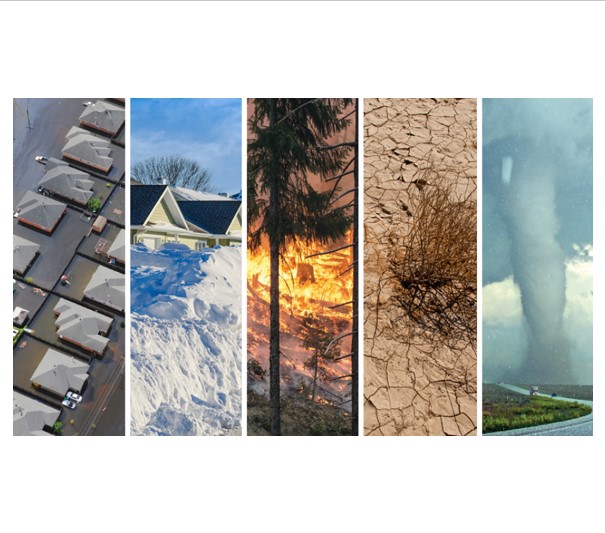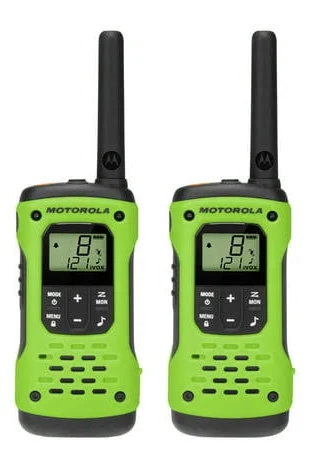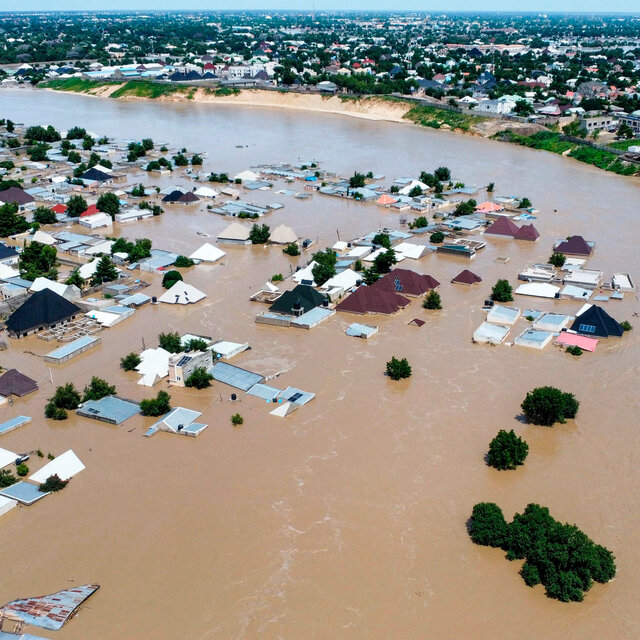Uncommonly Common these days
I remember growing up in the 70s and 80s before weather forecasting was what it is today. I also remember that extreme weather was a rare occurrence and when it was expected, people took notice. Sure disasters would strike without warning much as they do today. However, there are many weather related events today that are happening with a frequency and severity not seen 40 years ago. Starting about 20 years ago the patterns were developing.
Numb to alerts / notification
Today severe weather notifications get ignored by most. Lost in the mix of news and information that is shot at us like water from a fire hose. There is only so much a person can absorb before it is too much to take. You get warning weary and skeptical. Especially if the predicted weather is not as severe or does not materialize because the weather pattern shifted.
The really sad part of this is that advances in science and technology make alerts and notifications today more accurate than they have ever been before. They will also keep getting better and more accurate as computer models gather more and more data over time.
Climate Change is real and it is here
Every day, I see articles about severe thunderstorms, tornado outbreaks, extreme hot or cold spells, more frequent and dangerous hurricanes, extreme flooding due to storm surge and torrential rain, out of control wildfires due to megadroughts, the melting of the polar ice caps, gigantic icebergs breaking off and sea level rise. It’s getting really hard to stay positive with all these negative events happening so often all around the world.
Whether or not you believe that humans are the cause of Earth’s shifting climate, it is changing. Even if you are in denial, the data is irrefutable, and denial won’t stop the extreme weather events we have experienced from continuing or getting worse.
It is time everyone starts paying attention to the patterns, frequency and severity or suffer in silence while you haggle with your insurance company over what damages are covered and what are not. Try not to be disheartened by the damaged and destroyed memories, the ruined pictures, lost heirlooms and both the physical and mental cost of trying to recover.
Extreme Weather is Costing Billions
This article discusses the disasters that impacted Earth in 2020 and their cost. Below is data compiled by NOAA showing the record number of 22 $billion+ weather disasters that hit the US in 2020:

The chart below shows the last 40 years of weather related disasters that cost a billion or more in damage. Note not only the increased number of $billion+ events each year but the rapid increase of Severe Storms in the past 10-12 years (the green portions of the bars) causing over a billion dollars in damage.

NOAA National Centers for Environmental Information (NCEI) U.S. Billion-Dollar Weather and Climate Disasters (2021). https://www.ncdc.noaa.gov/billions/, DOI: 10.25921/stkw-7w73
The data paints a bleak picture
According to the data, extreme weather has killed over 2 million people in the past 50 years. Let us take a look at some data regarding extreme weather from the past 18 months:
Hurricanes
- 2020 saw a record breaking 30 named storms in the Atlantic ocean (average is 12).
- The state of Louisiana was struck by an unprecedented 5 named storms in 2020, two within weeks of each other.

- Elsa, the 5th named storm of 2021 (and the earliest we have had 5 named storms) formed July 2.
- The data suggests that there will be even more severe storms this year.
Extreme Cold
- The southern US experienced extreme cold in February with Texas bearing the brunt of the disaster.
- Almost 200 deaths in Texas have been attributed to the cold that caused wide-spread power outages. frozen pipes and water damage.

Extreme Heat & Drought
- The Western US and Canada is experiencing an unprecedented mega-drought and extreme heat this summer leading to even more and deadlier wildfires.

- Utah has seen more 100+ degree days this year already than any previous year totals.
- An estimated 1 billion sea creatures were cooked in their shells during the heat wave that struck the states of Washington and Oregon and British Columbia, Canada in late June.
- Oregon reported 116 deaths and Washington reported 78 deaths due to the extreme temperatures.
- Lake Mead which supplies Hoover dam is at its lowest level since it was created in 1935. It was last full in 2000. Power generation has already been reduced by 25% and will continue to drop as the water level decreases.

- Vegas tied its all-time record high at 117F (47.2 C) on July 10.
- Death Valley tied for hottest recorded temperature on earth on Jul 9 at 130 F (54.4 C)
- California recorded its lowest annual rainfall amount since 1895.
Wildfires
- 2020 was also a record-breaking wildfire year with over 10.1 million acres burned due to high temps and mega-drought conditions from over 58,000 wildfires….90% were caused by humans.
- Just last week, the Canadian town of Lytton burned to the ground in a wildfire after setting all-time high temp record in June 2021.

- The Bootleg fire burning in Oregon right now (seen from space below) is larger in size than both the cities of New York and Los Angeles. (Updated 7/14 NY and 7/19 LA).
- Picture in your mind the entire city of New York or Los Angeles on fire.

I could go on but if this does not get through to you, what will?
What can you do?
As an individual it is sometimes hard to fathom what is going on. It is even harder to figure out what you can do. Individually it seems like there is not much that will change anything. Collectively, as a community and society, if we all make changes, they can add up to a big impact on our changing climate. Things that can help:
- Have an emergency plan and supplies. This can reduce the impact to you and your family when a weather related disaster strikes.
- Cut back on water usage/waste.
- Use recyclable products.
- Use less single use/throw away products.
- Get renewable energy sources for your home (solar/wind power, backup battery).
- Get involved in local activities regarding climate change.
- Stay informed on weather related activity in your area
- Download and configure the American Red Cross Alerts app and/or FEMA app. (Articles on each coming soon)
Unfortunately, as we are seeing from the collective actions we have not taken over the past 40 years it is currently having a negative impact on millions of lives and billions of plants and animals. Entire species are at risk of becoming extinct if we don’t change now. We will not reverse things overnight. The extreme weather will continue for the foreseeable future. Slowly, over the next several decades our actions can bring about change…the only question is it the change we want and can live with.
Last Updated on August 16, 2022




